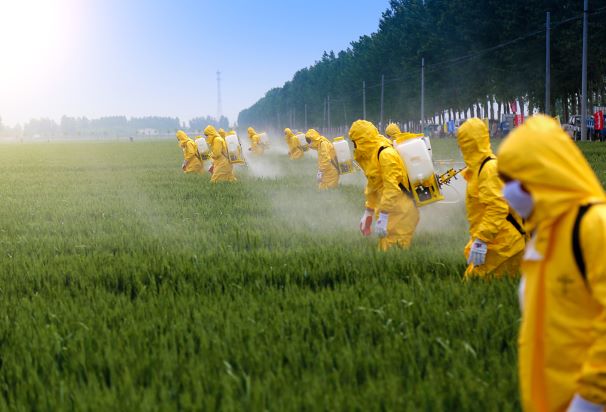

Is that spray killing children?
The proposal to decrease the use of chemical pesticides by 50% by 2030 and to prohibit pesticide usage in public parks, playgrounds, and schools has been rejected by the European Parliament. The legislation, known as the Sustainable Use of Pesticide Regulation (SUR), was a crucial component of both the European Green Deal and the “Farm to Fork” strategy.
Following a series of amendments that diluted the European Commission’s initial proposal, the bill was dismissed in a vote of 299 to 207, with 121 abstentions. This rejection effectively puts the bill to rest, and any future proposals will have to begin anew after the June elections for European Parliament members.
Activists express disappointment, asserting that Members of the European Parliament (MEPs) succumbed to misleading information propagated through an extensive lobbying campaign by pesticide corporations. The European Commission had previously criticized the existing regulations as insufficient and inconsistently enforced across the EU.
The rejection of the bill was welcomed by the EU’s main agricultural group, COPA-COGECA, which called for improved dialogue between farmers and the EU institutions. Despite the EU’s commitment to becoming climate neutral by 2050, concerns among leaders and lawmakers about potentially alienating voters with binding legislation and stringent requirements have surfaced in the lead-up to the next European Parliament elections.
Environmental activists argue that this decision allows Europe to persist in endangering both citizens and nature. In early 2024, Member States are expected to address the legislation with a “general approach,” and the Parliament will subsequently vote on the Council’s position. However, negotiations are proving challenging, as the Commission’s proposal is met with considerable apprehension from the Council.
In 2021, the European Commission informed that about 355,175 tonnes of pesticides were sold in the EU. This was a moderate increase of 2.7% compared with 2020 and represented a further rebound back towards the medium-term annual average between 2011 and 2021.
Reliance Industries Ltd (RIL) Chairman Mukesh Ambani has announced a massive ₹75,000 crore investment in…
Green-energy heavy-duty truck maker Blue Energy Motors has reached a remarkable milestone by surpassing 50…
India is on track to exceed its Nationally Determined Contribution (NDC) target of reducing the…
Raj Process Equipments and Systems Pvt Ltd, a Pune-based technology innovator and engineering conglomerate, is…
Europe’s renewable energy sector faces a potential slowdown, burdened by grid saturation, permitting delays, and…
Hexa Climate has announced the launch of a pioneering afforestation project in Purulia, West Bengal.…